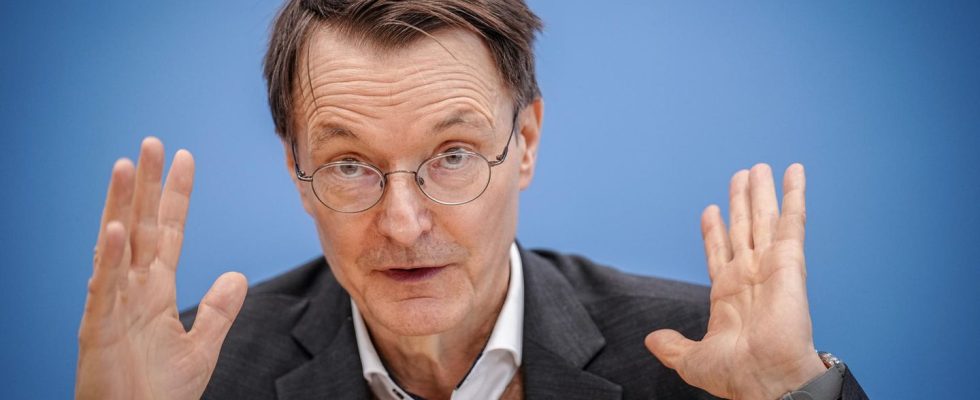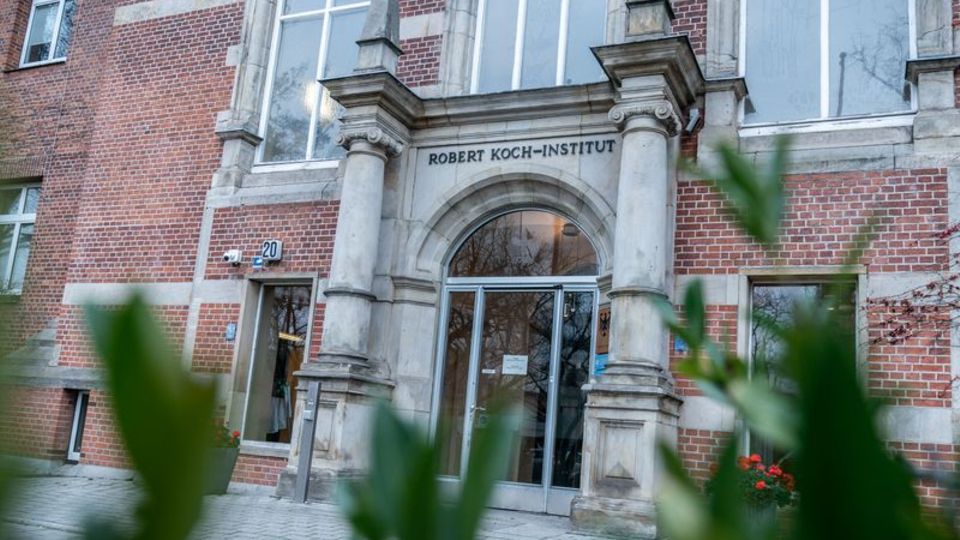Pandemic
RKI protocols: Politicians argue about the correct processing of Corona
Health Minister Lauterbach: Support for RKI
© Kay Nietfeld / DPA
The publication of previous minutes from the RKI Corona crisis team is shocking politicians. Does it need a workup? The Minister of Health says: It’s coming now. At least a little.
In the debate about the Corona protocols of the Robert Koch Institute (RKI), Health Minister Karl Lauterbach is protective of the authority under his authority. “The RKI did the right thing back then, regardless of political instructions,” said the SPD politician on Monday.
After a long legal dispute, the RKI recently published the minutes of its Corona crisis team. The online magazine “Multipolar” sued and then published the documents. The more than 1,000 pages provide a good insight into the internal discussions of the crisis team around the then RKI President Lothar Wieler, although some of them are blacked out.
The online magazine “Mulitpolar”, which is close to the corona denier scene, concludes, among other things, that the RKI did not increase the risk assessment for Corona in March 2020 based on its own technical expertise. At the relevant point it says: “The risk assessment will be published as soon as (person’s name redacted) gives a signal.” The RKI rejects this accusation – Lauterbach now agrees.
“The so-called blacked-out employee is also an employee of the RKI, so there was no political instruction to which the RKI would have reacted,” said the Health Minister. He also defends the decision for a stricter FFP2 mask requirement in winter 2020; the online magazine also questioned its scientific basis. “It was clear from the start: If FFP-2 masks are worn incorrectly, they don’t work as well,” said Lauterbach. However, after the population learned to wear them, the FFP-2 masks helped a lot. “Even from today’s perspective, it was the right decision.”
FDP calls for study commission
There are now increasing voices across parties calling for a consistent reappraisal. “We have to disclose everything,” said former North Rhine-Westphalia Prime Minister Armin Laschet (CDU) on ZDF. FDP parliamentary group vice-president Konstantin Kuhle is now confirming his parliamentary group’s call for the pandemic decisions to be critically reviewed in the Bundestag.
“Politicians won’t be bothered if the massive restrictions on fundamental rights during the Corona period are dealt with openly and transparently,” Kuhle told the newspaper star. “A parliamentary evaluation, for example as part of a study commission, could make a lasting contribution to healing injuries that have occurred and avoiding mistakes with a view to future pandemics.”
Lauterbach rejects this proposal. The SPD politician refers to a group of more than 20 scientists that will now be convened and will focus on the lessons learned from the Covid pandemic. The virologists Christian Drosten and Hendrik Streeck are also part of this committee. “There is intensive work being done there on the topic of health and resilience,” said Lauterbach.
RKI protocols? Green Party politician warns of “sham scandal”
Green health politician Janosch Dahmen also wants to evaluate the Corona experiences – but also rejects the FDP proposal. “A study commission or even a committee of inquiry would be misused primarily for party-political profiling,” he told the star. “As a doctor and politician, given the countless victims, I find it wrong to want to use the process of coming to terms with the pandemic for the upcoming election campaigns.”
Dahmen warns that the debate about the RKI protocols is “obviously an attempt to create a false scandal.” According to all the information available to him so far, the documents reflected the scientific knowledge known at the time. Some information has been confirmed with current knowledge, while others have been given the all-clear. “However, to subsequently derive a scandal from this is more an expression of ignorance and an attempt at further disinformation, which has nothing to do with honest learning from the pandemic,” said Dahmen.
The left-wing “Alliance Sahra Wagenknecht” (BSW) is also calling for a reappraisal. “A study commission is not enough. What is necessary is a committee of inquiry to shed light on the period with the greatest restrictions on fundamental rights in the history of the Federal Republic,” said Wagenknecht to the dpa.


